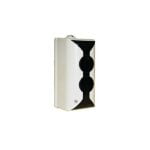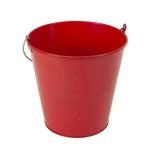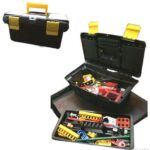Your list is empty, add products to the list to send a request
What Type of Smoke Detectors Do Hotels Use?

15
May
When it comes to ensuring guest safety, hotels must meet the highest fire safety standards. One of the most essential components of a hotel’s fire protection system is the smoke detector. But with various technologies available, what type of smoke detectors do hotels typically use — and why?
In this comprehensive guide, we explore the types of smoke detectors most commonly used in hotels, how they function, their benefits, and how you can apply similar standards to your own property.
About Firesupplies.in – India’s Trusted Fire Safety Online Store
Founded by South Fire Systems Pvt. Ltd., Firesupplies was established as India’s first dedicated online store for fire protection equipment. With a deep commitment to building and human safety, we offer a wide range of high-quality fire alarm systems, smoke and gas detection devices, emergency lighting, and safety gear at competitive prices.
Our reputation as a trusted brand in fire safety is built on experience, product quality, customer trust, and our unwavering commitment to life safety.
Why Fire Safety in Hotels Is Critical
Hotels accommodate hundreds or even thousands of guests daily. This high occupancy, combined with kitchens, electrical equipment, and various combustible materials, significantly increases fire risks.
Key reasons why fire safety in hotels is non-negotiable:
- Protects lives of guests and staff.
- Prevents property damage and revenue loss.
- Meets national safety regulations like those from the National Building Code (NBC) of India and IS:2189 standards.
- Enhances brand trust and hospitality ratings.
Types of Smoke Detectors Used in Hotels
Hotels use smoke detectors as part of an integrated Fire Alarm and Detection System (FADS), which includes other devices like heat detectors, manual call points, and control panels.
The most common types of smoke detectors in hotels include:
1. Photoelectric Smoke Detectors (Optical Smoke Detectors)
These detectors use light scattering technology to identify smoke particles.
Ideal for detecting:
- Smoldering fires (e.g., burning bedding or upholstery)
Benefits:
- Early warning for slow-developing fires
- Fewer false alarms from cooking or steam
Usage in Hotels:
- Widely used in guest rooms, hallways, and lobbies
2. Ionization Smoke Detectors
These use a small amount of radioactive material to detect changes in air ionization caused by smoke.
Ideal for detecting:
- Fast-flaming fires (e.g., paper, wood, accelerants)
Benefits:
- Quicker detection of sudden fires
- Cost-effective
Usage in Hotels:
- Often used in electrical rooms and storage areas
Note: Many hotels now prefer photoelectric detectors or dual-sensor detectors due to better performance and fewer false alarms.
3. Dual-Sensor Smoke Detectors
These combine both photoelectric and ionization technologies for comprehensive detection.
Usage in Hotels:
- Ideal for high-risk areas like kitchens or corridors near elevators
Benefit:
- Enhanced reliability for detecting all types of fires
4. Aspirating Smoke Detectors (ASDs)
These advanced detectors continuously sample air through a network of pipes and are highly sensitive.
Usage in Hotels:
- High-end or luxury hotels, especially in server rooms, control centers, and ballrooms
5. Addressable Smoke Detectors
These are part of an intelligent fire alarm system, where each detector has a unique address for pinpointing exact locations.
Usage in Hotels:
- Large hotel properties with central monitoring systems
Popular Smoke Detector Brands Used in Indian Hotels
Leading brands approved for hotel use include:
- Agni – Trusted Indian brand offering reliable standalone smoke detectors
- Honeywell
- Siemens
- Notifier by Honeywell
- Apollo Fire Detectors
- System Sensor
Hotel Fire Alarm System Compliance in India
Hotels must comply with National Building Code of India (NBC) standards and local fire department guidelines. Key requirements include:
- Fire alarm systems on each floor
- Manual call points within 30 meters of any point
- Visual and audible alarm indicators
- Fire extinguishers and hydrants
- Smoke detection in all rooms and corridors
For more information, refer to NBC 2016 Volume 2, Part 4 by the Bureau of Indian Standards.
Where Are Smoke Detectors Installed in Hotels?
Typical locations include:
- Guest rooms
- Lobbies and reception areas
- Hallways and stairwells
- Kitchens and dining areas
- Electrical rooms and laundry areas
- Conference and banquet halls
Maintenance Requirements for Hotel Smoke Detectors
Routine testing and maintenance are mandatory:
- Monthly checks for battery-operated models
- Quarterly servicing by certified technicians
- Annual fire drills including alarm testing
- Proper record-keeping of inspection logs
Non-compliance can result in hefty fines, closure orders, or worse — avoidable fatalities.
Advantages of Using Photoelectric Smoke Detectors in Hotels
Hotels increasingly choose photoelectric detectors because they offer:
- Quick response to slow-burning fires
- Lower false alarm rates
- Compatibility with centralized systems
- Compliance with fire safety audits
Explore this popular model: Agni Hunt Standalone Smoke Detector
How to Choose the Right Smoke Detector for Hotels
When selecting smoke detectors for hotel use, consider the following:
- Type of fire risk (flaming vs. smoldering)
- Room usage (guest room, kitchen, server room)
- System integration (standalone vs. addressable)
- Budget and brand reliability
- Maintenance frequency and lifespan
Frequently Asked Questions
1. How do hotels detect smoking in rooms?
A: Hotels use a combination of:
a. Photoelectric smoke detectors sensitive to cigarette smoke
b. Ionization detectors for fast-burning sources
c. Smart environmental sensors that detect airborne chemicals and odors
d. Smoke alarms connected to building management systems (BMS)
2. Which is better, photoelectric or ionization?
A: Photoelectric smoke detectors are generally better for hotel use because:
a. They detect slow, smoldering fires early (common in guest rooms)
b. Have fewer false alarms
c. Are recommended by fire safety experts for residential and hospitality settings
3. What are two basic types of smoke alarms?
A: The two basic types of smoke alarms are:
a. Ionization Smoke Alarms – Better for fast-flaming fires
b. Photoelectric Smoke Alarms – Better for slow-burning fires
Many hotels use dual-sensor alarms that combine both technologies for enhanced safety.
Secure Your Property with Certified Smoke Detectors from Firesupplies
Whether you’re managing a hotel, commercial property, or residential complex, trust Firesupplies for top-quality smoke detection products.
- Certified and tested devices
- Affordable prices
- Nationwide shipping
- Expert support and guidance
Protect your guests. Safeguard your brand. Invest in reliable fire safety today.



























